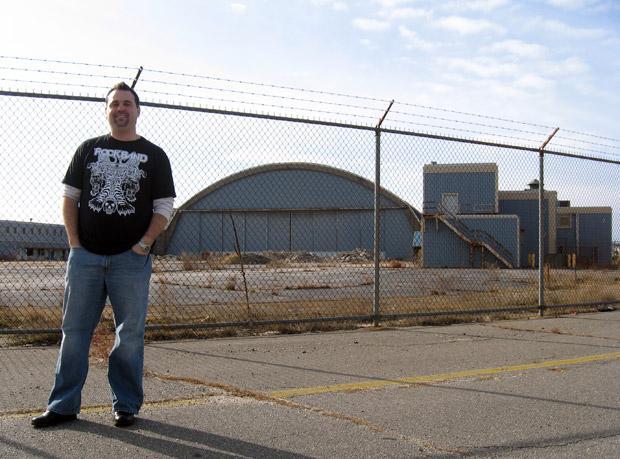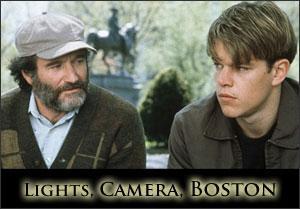Advertisement
Hollywood East's Less-Than Red Carpet Arrival
Resume
The promise of transforming Massachusetts into "Hollywood East" has been in the spotlight for years. Just recently Plymouth Rock Studios — one of at least three film studios proposed for the state — suffered a major financial setback, calling into question the idea of what it actually means to be "Hollywood East," and whether it makes sense to have film studios here at all.
It's difficult to answer that question on purely economic grounds because the film industry as a whole has always been based on pitches and promises — just like in Robert Altman's 1992 film, "The Player."
This story is also difficult because it's tough to determine the real economic impact of a fledgling film industry on any state. Add in the fact that the entire movie business is in dramatic transition and you can end up really confused. One of the questions that is up for debate is whether states should build sound stages at all.
"In my experience that isn't what brings people here," said Jan Egelson, an independent film director in Boston for 30 years. "I've never known a production where I've tried to bring them here and the folks producing it have looked around and said, 'OK, well that city has got the best sound stages in the world. Oh Boston, let's go there.' "
"I don't think that happens," Egelson said. "The best sound stages in the world are in LA."

In Egelson's view, movie productions come here for the locations. But one Hollywood producer said sound stages might make a difference. Jeff Waxman recently produced "The Fighter," which shot on location in Lowell.
He pointed out that some movies don't need real-world locations, only indoor sound stages. One example is "Dawn of War," the $100 million film he's working on right now in Canada.
"We're up in Montreal now," Waxman said, "and the reason we're shooting here is the movie I'm doing now is a complete visual effects movie — all green screen — and I needed stages, believe it or not."
Waxman also needed Canada's generous film tax credit. It's 25 percent, same as in Massachusetts. Waxman said tax incentives top his shopping list when he's looking to locate a film. Adding a skilled crew base is critical, too.
Joe Maella heads the Massachusetts Production Coalition, which represents union workers and all sorts of film professionals. He said building studios with sound stages makes sense because it brings jobs. "Producers, line producers, directors, editors, writers, lighting directors, makeup, sound, set design," he ticked off.
And don't forget the actors. Thirty-year-old Chuck Slavin is drooling over the prospect of a film studio in Massachusetts.
"This is a huge opportunity for myself," Slavin said. "You know, that's me as an actor being greedy because I'd love to be able to, you know, have a place where I could just say, 'Hey, I'm going to work on a movie and here's where I'm at,' and not have to bounce around from place to place."
Slavin hopes one of the studio projects will be built in Weymouth, where he lives. It's on the site of the town's old Naval Base. A group of producers want to transform its huge, empty airplane hangers into sound stages.
But even without any film studio development, Nick Paleologos of the Massachusetts Film Office said this state has come very far, very fast since adopting the 25 percent film tax credit three years ago. "We've gone literally from getting a movie once a year to almost an average of a movie every month," he said. "And we could probably continue along at that pace if nothing happened."
Paleologos spends his days wooing Hollywood producers to the state. Tax credits are his main selling point, he said, noting that if producers need sound stages, they often use empty warehouses. Paleologos also wants to make it clear that the various film studio proposals that are currently on the table are private ventures and receive no funding from the state.
"I mean, I don't want to gild the lily, I do think that it would be a shame if, you know, one of them wasn't able to get a shovel in the ground, but it's not going to impact the level of production we have enjoyed up to this point," he said. "It's just going to prevent us from going to the next level."
That "next level" could put Massachusetts on equal footing to compete with states that do have state-of-the-art film studios, such as New Mexico, Connecticut and Louisiana.
But the plot thickens: Even those states report varying levels of success since building sound stages — and it seems until this fledgling film industry evolves further, the numbers regarding impact will continue to be somewhat mysterious.
This program aired on December 15, 2009.
